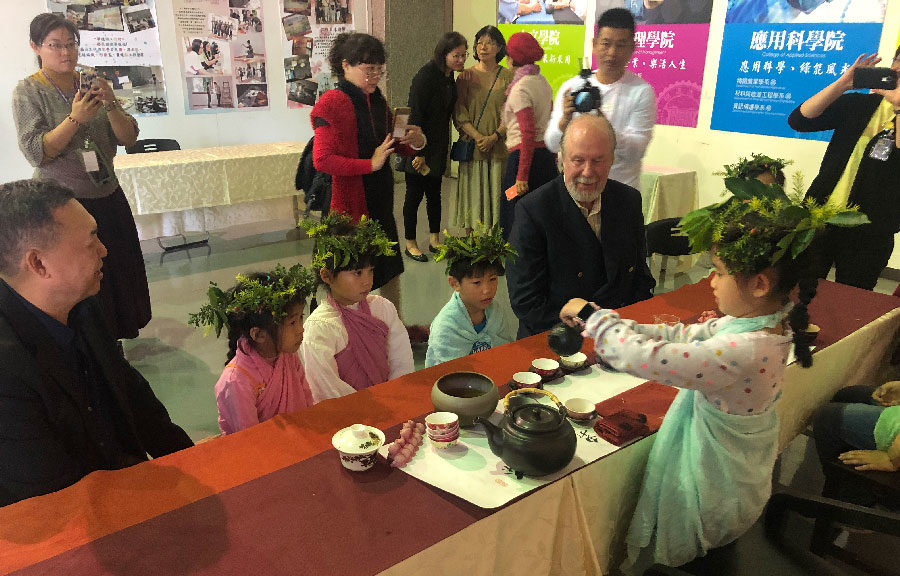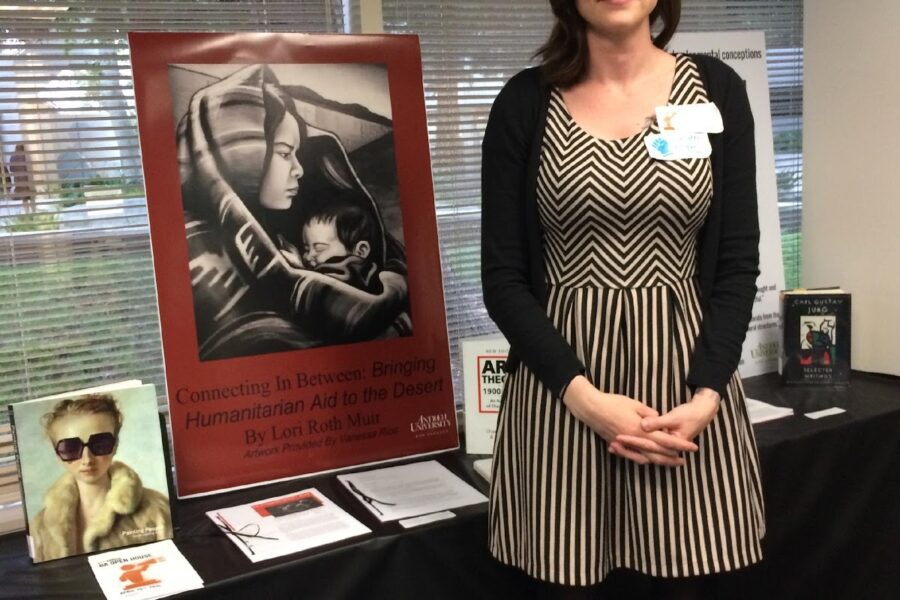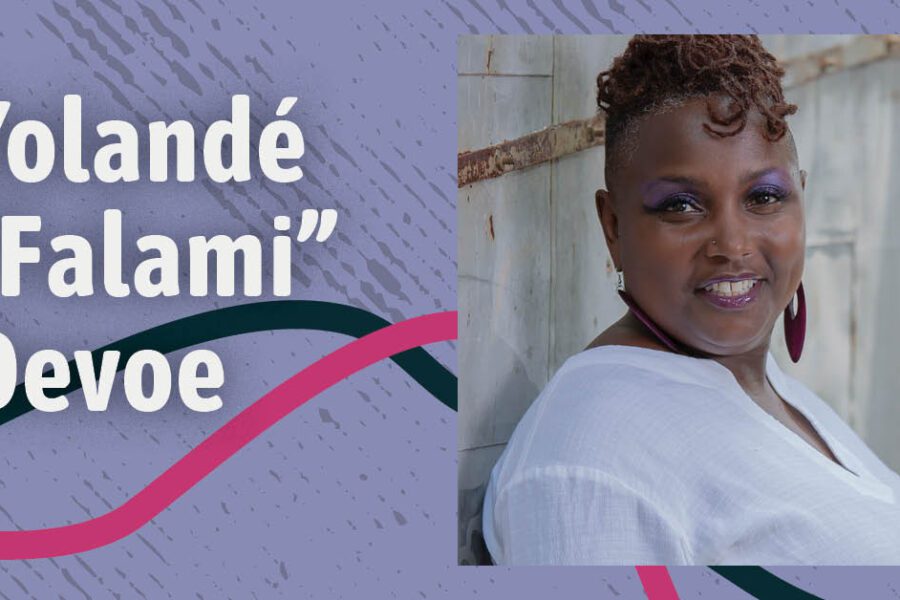Dr. Torin Finser, PhD, of Antioch University New England is sharing his expertise with educators around the world to commemorate 100 years of Waldorf Education and look to the future.

2019 marks the 100-year anniversary of the founding of Waldorf Education. Also called Steiner Schools, institutions subscribing to Waldorf principles follow a rigorous and fluid curriculum that embraces creative ways of learning and encourages strong bonds between teachers and their students over years of mutual learning. Students grow together through intellectual, emotional, and physical experiences that engage them with the academic material. Embedded in this cooperation is the chance to learn fairness, equity, and respect for themselves and each other.
Dr. Torin Finser, an authority in teaching Waldorf principles, has striven to mark this centennial milestone in two distinct ways: by sharing the story of how and why Waldorf was founded and looking forward to determining what role Waldorf ideals have in the future of education.
A Beginning in Social Justice
The best ideas never just drop out of the sky like Newton’s apple. As Waldorf Educator Dr. Finser sees it, great ideas come from great need and a lot of creative effort.
“When the first [Waldorf] School started in Stuttgart, Germany in 1919, it wasn’t because somebody woke up in the morning and said ‘I have a great idea: let’s start a school.’”
The movement began not with an educator but with a businessman. Emil Molt, owner of the Waldorf-Astoria cigarette factory in Stuttgart saw his employees (many returning World War I veterans) newly disillusioned with their society and political leaders. They were desperate for a better way to educate their children that would heal this newfound breakage in their social system. So on behalf of his workers, Molt approached Mr. Rudolf Steiner and asked for his help starting a new kind of school for the children of his employees that would teach them to be better people and leaders.
Steiner was a relatively unknown Austrian philosopher and scientist, whose primary work involved a theory of humans as threefold beings of spirit, soul, and body named Anthroposophy. Steiner agreed to help Molt, as he was grappling with a similar perceived need for changes to the social order but couldn’t find traction for his ideas on threefolding. Both agreed that working with children was the best way to move towards this new social order they desired, as children represented the future leaders of that society.
To cement this partnership, Steiner laid out several conditions for Molt’s new school: it had to be accessible to everyone (including girls), it must be tuition-free, and the teachers needed to have complete autonomy to teach as they saw fit. Being unconfined from state standards was seen as a way to teach to the child’s needs, not to a social order.
Molt agreed and within months, the two had pulled together faculty from all over Europe and opened the school.
“The Waldorf School started with a social mandate and that, as well as the social justice theme, can still be experienced in many places around the world.” Dr. Finser continues. He gestures animatedly around his book-cluttered office. “I’ve been to places all over the world…where Waldorf schools were founded to care for children in need of inspired teaching”
Stories pour from him as — with the excitement of someone selecting random vacation destinations on a map — he recalls some of the schools he has visited:
A school in Kathmandu, Nepal founded for orphans and the children of people with leprosy; children who would otherwise not have parental care, let alone an education.
A Waldorf school in New Zealand that uses Mauri principles to teach in the first-nation traditions of its students.
A school founded by a very diverse group of ethnicities in Chengdu, China because they felt the public schools were too highly regimented and had no respect for the individual or their background.
Even the oldest Waldorf School in the United States (the Rudolf Steiner School in New York City) began with social justice roots. It was founded in 1928 to help provide sustenance, as it had an early connection to a health food restaurant.
Waldorf Schools’ long and proud history is riddled with successes and social justice victories across the world. But for the centennial, Dr. Finser is also interested in finding the movement’s shortcomings and future challenges.
“The social mission is still felt in many places around the world.” Dr. Finser concludes, his excitement subsiding. “However, we have a tradition in the US and UK of private schools. When Waldorf came to this continent, it took on the mantle of private schools. That has been a challenge to our social mission. Because when you charge tuition,” he pauses here, waiting to make deliberate eye contact before continuing, “you are excluding many children who would benefit from this education. We are challenged in the United States in terms of the social mission of diversity and economic affordability.”
Dr. Finser’s mission in 2019 is this: to remind Waldorf educators everywhere of their roots in social justice and help them discover new ways to envision their goals. His hope is that the centennial will serve to bring greater visibility to Waldorf education and its social and pedagogical mission.
Teaching Waldorf Education
Dr. Finser has been steeped in Waldorf for most of his personal and professional life. He was educated in a Waldorf School and taught at the Great Barrington Rudolf Steiner school in Massachusetts for 12 years before finding his place at AUNE.
“[Great Barrington] rewarded me with a sabbatical, which ended up being their undoing.” Dr. Finser acknowledges with a chuckle. “During the sabbatical, I stumbled across Antioch. Antioch asked me to do one course and I was hooked.”
While teaching children had allowed Dr. Finser to share his many passions in art, music, and movement, he realized that an important part of the Waldorf process had been missing from his professional life — his own scholarship and writing. Coming to AUNE to train Waldorf educators would still allow him to engage people in the creative educational pursuits he cherished. But it would give him something new as well: a chance to further explore Waldorf principles and the freedom to learn more from his new community of adult students. (And earn a PhD)
“I realized immediately that working with adults…I could continue all of the things I most enjoyed with children and yet I also had that intellectual stimulation.”
When Antioch offered him a full-time position at the end of his sabbatical, Dr. Finser said yes and became a fully-integrated member of the Antioch education community. In 1991, his first cohort of students began their training in his program. He was the program director for Antioch’s Waldorf program for 18 years, followed by a 9-year term as the Chair of Antioch University New England’s Education Department. He recently stepped down as department chair in 2018.
His time at Antioch has been the rewarding experience he yearned for; both for his students and himself. Over his 3 decades here at AUNE, Dr. Finser has worked with over 1,200 Waldorf graduate students at Antioch; training them in how to be insightful, compassionate educators for students in the Waldorf tradition.
After his impressive tenure at AUNE, Dr. Finser is recognized around the world as an authority in Waldorf education and a best-selling international author of Waldorf books. In addition to founding and chairing the Center for Anthroposophy, he is the author of thirteen books, including School as a Journey: The Eight-Year Odyssey of a Waldorf Teacher and His Class, which holds the coveted spot as the bestselling book on Waldorf Education in the world and a place of honor in his office. Next in line for publication: The False Door between Life and Death; how to support grieving students, parents, and teachers.
But now that he’s let go of his administrative roles, he’s found new purpose in returning to his research and speaking internationally on issues of social justice surrounding Waldorf schools.
This is the latest adventure in his education: speaking engagements all over the world to share the story of Waldorf and his vision for the future in as many places as he can.
Celebrating 100 Years, and Looking Ahead

In the last few years, Waldorf public education has taken off. Since the 1970s, the establishment of schools has increased exponentially. Today, there are over 200 schools in the United States alone. This is not just an American phenomenon: more than three-quarters of the Waldorf schools in the world are located outside the USA and more countries are opening their doors to the initiative. For the first time, Waldorf is making its way into the Middle East to countries like Jordan and Israel.
Alongside these schools comes a growing global presence of Waldorf educators: sharing similar ideals, passions, and a century of history. Behind them is a legion of Waldorf-educated students; coming together to form a large community of learners. This is quite the audience of 1,100 schools to celebrate an anniversary.
“That demarcation [of 100 years] is an opportunity for recognition, celebration, and also self-assessment,” says Dr. Finser. “Where have we succeeded [and] where have we not succeeded? I’m happy to be self-critical…everything we do has room for growth and further development.”
Now that he’s no longer directing a department at AUNE, Dr. Finser is flexing his ability to engage with that enormous audience and have that reflection happen. Through lectures and workshops, Dr. Finser is embarking on his mission to teach about Waldorf education and plan for the future with a diverse group of educators and students in mind.

With the help of Waldorf’s global network of educators, schools, universities, and nonprofits, Dr. Finser has an ambitious schedule of engagements planned for 2019. He spoke in Amman, Jordan in January, where he and his wife, Karine Munk Finser, worked with Palestinian refugees and introduced practicing teachers to Waldorf education. The event also served as a celebration of the release of School as a Journey in Arabic. The Middle East, in particular, has had very little exposure to Waldorf education but more educators are recognizing the benefits and looking to embrace the philosophy. Dr. Finser’s book provides a good introduction for them, as it is the first Waldorf book translated into the Arabic language.
Jordan was the first of many planned lectures and workshops. This February, he was also the keynote at a national conference at MingDao University in Taiwan as part of his Beyond 100 initiative. For the recognition of the centennial, Dr. Finser is also scheduled to attend upcoming events in Australia, New Hampshire, and Europe this year — by November, he will have spoken on almost every continent within a year.
His lectures have focused on a theme he calls “Beyond 100: What will it take for Waldorf schools to flourish in the next 100 years?”
“In my talks, I’m using the phrase ‘Waldorf Education for Social Justice’. This [anniversary] is an opportunity to sound some of our major themes. Waldorf Education for social justice in particular.”

In both Amman and Taiwan, Dr. Finser wove a story for his audience on the social roots of Waldorf education laid out in 1919 and the original mandate for social justice and the core pillars of Waldorf was fixation. In particular, he emphasized the need for schools to connect with the current issues dividing our society: political polarization, racism, income inequality, immigration, nationalism, and religious fundamentalism to name a few. Focus on these problems at the educational level can be transformative and put power in the hands of the community to address their immediate concerns.
Dr. Finser hopes that by spreading the word about the legacy of Waldorf education and reminding educators of their social justice roots amid the problems facing the world, the community can seek out new ways for the field to change and adapt in the future. But the external advocacy needs to be balanced with opportunities for introspection as well.
“How do we build resilience, how do we create the inner and outer resources to not only continue what we’ve been doing but self-reflect and reinvent and take up issues and needs in a new way?”
Dr. Finser is particularly interested in the establishment of connections between the students, their teachers, and their parents. In these bonds, he sees the potential for the development of new emotional and spiritual community resources centered in Waldorf schools.
“How can Waldorf education help children develop empathy and greater compassion for others? Can we also fight the inner battles many of us face and look at life’s challenges with new inner fortitude? As an example, having lost loved ones, many people confront death and illness as never before. How can a school community develop resilience when faced with a loss?” (See new book mentioned above)

His future lectures across the world will delve deeper into these ideas, spreading his vision of a compassionate community to new audiences. In a world of uncertainty, these are all important considerations for a community this prolific and influential to consider moving forward.
Unexpected Treasures: Collaboration
Particularly exciting are all the new connections Dr. Finser is building by traveling so much. In both Jordan and Taiwan, there were extensive media coverage of his visit, including live interviews. Antioch University is now recognized in these places as an innovative leader in Waldorf teacher education.
While engaged in this mission, Dr. Finser has found that he’s able to reach new audiences and figures of authority in other countries. The education minister of Taiwan attended his talk alongside the entire faculty of the Ming Dao university. Dr. Finser’s appearance in Amman was sponsored by the Jordanian Royal Family and his interview with Jordanian national television included local teachers. He hopes that each speaking engagement and new connection he makes can help join Antioch’s education department and the greater Antioch community with new initiatives and possibilities all over the world.
“There’s something that happens in the chemistry when you collaborate that creates something greater than the sum of its parts.” He acknowledges, his eyes shining. “I’m excited to see where it goes from here. We are just beginning!”




